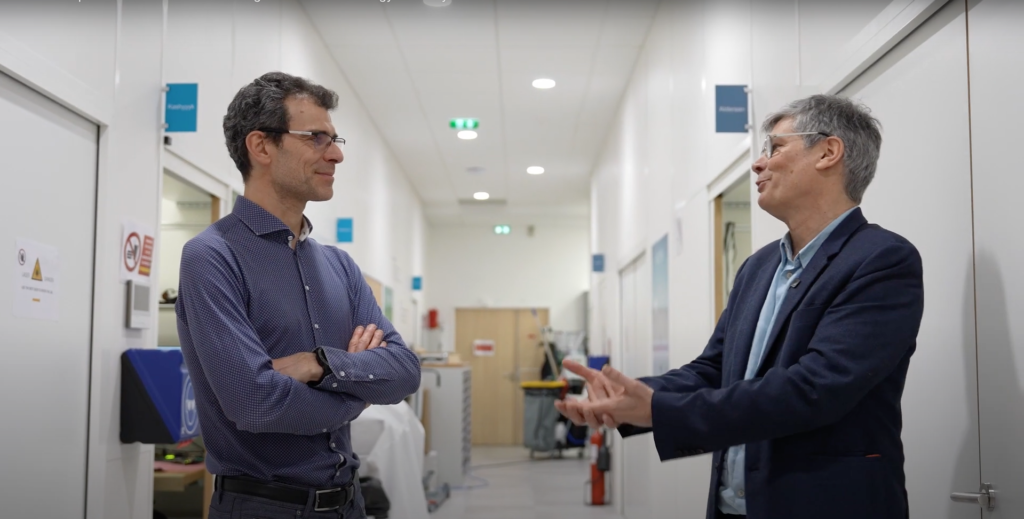Quantum leap in EDF’s approach to energy management with Pasqal
Électricité de France (EDF) is a leader in the global energy market and the largest energy provider in France, committed to adapting to a rapidly changing industry landscape. With a diverse energy portfolio that includes 50 nuclear power plants, along with significant operations in renewable energy and gas plants, EDF prioritizes generating clean electricity to the highest standards of safety.
As renewable energy adoption increases along with Electric Vehicle (EV) use, EDF faces challenges in demand forecasting and supply optimization given the changes in consumer habits and energy requirements. Addressing these challenges is crucial for ensuring efficient and safe energy distribution in a transforming energy sector.
Challenges and the arrival of quantum drive EDF’s innovation push
One of the most significant challenges EDF faces is the accurate forecasting of energy demand. This is intensified by the inherent unpredictability of renewable energy sources. Unlike traditional energy, the output from renewables such as wind and solar is heavily dependent on environmental conditions, which are naturally variable and difficult to predict, complicating the forecasting models. Furthermore, nuclear power plants and gas plants cannot be activated or deactivated quickly to match these fluctuations. This limitation necessitates highly precise forecasting and planning to ensure a balance between energy supply and demand.
EDF’s interest in quantum computing emerged from the limitations inherent in classical computing and coding methods, particularly in handling these complex forecasting and optimization challenges. Traditional algorithms, while effective for smaller scales, struggle to keep up with the expansive needs of modern energy management, such as accurately optimizing the charging sequence of millions of electric vehicles.. Classical computers, used extensively for tasks ranging from simulating nuclear plant operations to the aging of photovoltaic materials, have reached their computational thresholds in these areas.
Recognizing these constraints, EDF began exploring quantum computing in 2017 as a means to significantly enhance their forecasting accuracy and operational capabilities. The EDF Quantum Project Team, led by Joseph Mikael, Head of Quantum Computing at EDF, is a diverse and interdisciplinary group that was brought together to tackle complex challenges in the energy sector. This team comprises 20 professionals from varied fields such as optimization, material science, and critical physics, all working on quantum computing initiatives. Originally set up with a long-term vision, the team was not expected to yield immediate returns but was established to ensure EDF was prepared with in-house expertise in quantum technologies.

EDF – Smart Charging
Learn more about how EDF leverages quantum computing to find innovative solution to challenges related to smart charging.
Pioneering quantum partnerships with Pasqal
EDF’s partnership with Pasqal originated in 2018, stemming from initial meetings with the startup’s founders, Professor Antoine Browaeys and Loïc Henriet. The initial project focused on optimization challenges, functioning as a collaborative research endeavor pairing Pasqal’s emerging quantum expertise with EDF’s deep industrial knowledge. This approach allowed both parties to benefit mutually—Pasqal gained insight into real-world industrial applications and challenges, while EDF explored innovative quantum solutions to optimize energy distribution, such as smart charging systems for electric vehicles. This collaboration was not just about applying existing quantum solutions but actively engaging in day-to-day problem-solving and research, establishing a foundation for ongoing innovation.
One of the most notable collaborations between EDF and Pasqal was their participation in a multidisciplinary hackathon that sought to demonstrate how scientific and technical innovation based on quantum technologies can deliver large-scale solutions today, from discovery, smart cities, and sustainable agriculture to renewable energy forecasting. During the hackathon, EDF explored the potential of Pasqal’s quantum technology to simulate and predict physical phenomena that directly impact energy production. This innovative approach utilized quantum computing not merely as a computational tool but as a physical simulator to model the environmental variables affecting wind farms and photovoltaic plants. The success of EDF’s team in winning the hackathon not only highlighted the practical applications of quantum computing in the energy sector but also underscored the benefits of collaborative research in addressing significant industry challenges.
Another project that EDF embarked on with Pasqal involved simulating the ageing of materials within nuclear power plants, a critical aspect of ensuring plant safety and operational integrity. Traditional computational methods have struggled to accurately model material behaviors when exposed to high temperatures and radiation due to inherent limitations in classical computing. This challenge necessitates numerous assumptions and simplifications, which can compromise the accuracy of simulations.
Inspired by Richard Feynman’s idea to use quantum particles for physics-related computations, EDF and Pasqal applied quantum computing to this complex problem. This approach is crucial for what is known as multi-scale modeling, where critical phenomena are simulated at the microscopic level to predict potential issues like material degradation or the formation of cracks within the reactor structure. By leveraging Pasqal’s technology, EDF is hoping to precisely simulate atomic movements and interactions under extreme conditions . This simulation capability is vital, as it helps predict the emergence and potential propagation of cracks, assessing their impact through larger-scale simulations that rely on partial differential equations.

EDF x Pasqal
A collaboration fostering innovation in the Energy industry.
Forging expertise through skills transfer and collaboration
The most significant advantage for EDF in partnering with Pasqal has been the extensive training and skill transfer, which has greatly enriched EDF’s technical capabilities. The relationship between the two teams is characterized by mutual technical respect and shared goals. Pasqal’s team, known for their deep understanding of their machines and quantum algorithms, has been instrumental in helping EDF’s specialists grasp the nuances of these advanced technologies. This collaboration has not only facilitated the development of custom algorithms that are not available in public libraries but also resulted in joint scientific publications aimed at top-tier journals. Such intensive cooperation underscores the symbiotic nature of their relationship, proving beneficial for both parties as they continue to explore the frontiers of quantum computing in industrial applications.
Looking ahead, EDF is poised to deepen its engagement with quantum computing, driven by ambitious projects that aim to push the boundaries of technology and its application in the energy sector. The strategic three-year roadmap for EDF’s collaboration with Pasqal features two main objectives. The first involves rigorous testing of quantum algorithms on actual quantum machines, moving beyond simulations to gain practical insights and validate the algorithms’ effectiveness in real-world scenarios. The second goal focuses on scalability—a critical challenge in quantum computing. EDF plans to explore parallelization techniques in partnership with Pasqal to enhance the computational power and efficiency of quantum algorithms. This effort is part of a broader project aimed at scaling up the applications of quantum technology in EDF’s operations.
EDF aims to determine definitively whether there is a quantum advantage to be leveraged and, if so, to establish a timeline for its broader implementation. This forward-looking approach underscores EDF’s commitment to integrating cutting-edge quantum technologies into its core operations, potentially transforming energy management practices and reinforcing its leadership in the global energy market.


